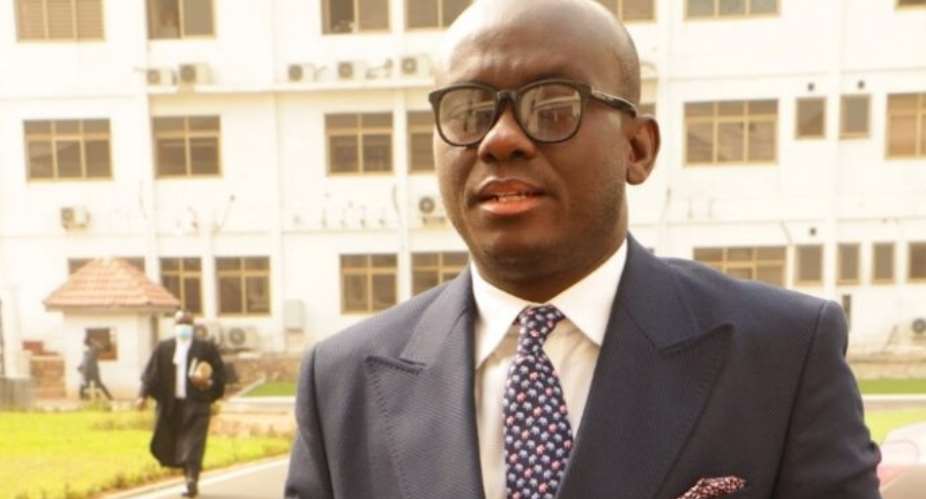Attorney General and Minister of Justice, Godfred Dame, has proposed an amendment to the Legal Professions Act to provide a framework for the licensing of universities to run Bachelor of Laws programmes.
The Bill noted that there are currently no modalities under which such approval is to be given by the General Legal Council, and “this has resulted in the establishment of different law faculties in various universities with wide and differential standards in teaching and infrastructure.”
It is expected to sanitise universities offering the Bachelor of Laws programme “and provide for a standardised way of monitoring these institutions to ensure optimum performance.”
“This will also improve on the quality of Bachelor of Laws graduands from these universities and with time, make their entry into Professional Law Course programme more seamless and effortless,” the draft Bill added.
Currently, section 4 of the Legal Professions Act, 1960 (Act 32) provides that a person is not qualified for enrollment unless that person is the holder of a degree from a university approved by the General Legal Council.
In a 62-page draft bill sighted by Citi News, Mr. Dame argued that the existing law does not give modalities for which the General Legal Council grants approval to Universities to run the bachelor of law degree programme.
To make this feasible, the Attorney General is advocating for a council to grant licenses to Universities, which are to be renewed every four years.
The Universities running the LLB programmes that require tuition fees are also mandated to take an insurance policy against loss of tuition fees in case the institution is closed down.
Meanwhile, the bill seeks to maintain the passing of an entrance examination and interview sessions as a prerequisite for enrolling into the Ghana School of Law.
The Bill also provides for the training of lawyers with reference to pupillage and requirements for an annual solicitor’s licence, additional requirements for admission into the Ghana School of Law comprising passing an entrance examination and an interview conducted for that purpose, and the discipline of lawyers with respect to professional misconduct.
The Bill further provides for the Legal Practitioners’ Privileges Committee.
“The Committee is tasked with the responsibility of recommending to the General Legal Council, privileges to be conferred on a member of the Bar including the conferment of the award of Senior Advocate, Ghana on a member of the Bar,” it explained.
Three MPs to table private member's bill for legal education reforms
Coincidentally, three Members of Parliament are set to file a private member's bill seeking to address challenges associated with legal education in Ghana.
The bill is being sponsored by Members of Parliament for Bolgatanga East, Dominic Ayine, Patrick Yaw Boamah, Okaikoi Central, and Muntaka Mohammed Mubarak, Asawase. A memo from the three MPs said the bill is expected to bridge gaps in the “current legal and regulatory framework by providing for critical aspects of legal education that remain either partially regulated or wholly regulated.”
The MPs in their bill are recommending the decoupling of the administration and regulation of legal education from that of the legal profession.
This motion follows the General Legal Council's (GLC) decision to admit some 499 law students who were denied entry into the Ghana School of Law.
The 499 law students were failed in the law entrance exams after a new quota system was initiated by the General Legal Council.
The Attorney General was particularly criticized by many for suggesting that law practice is a privilege and not a right .
—citinewsroom





 We’ll no longer tolerate your empty, unwarranted attacks – TUC blasts Prof Adei
We’ll no longer tolerate your empty, unwarranted attacks – TUC blasts Prof Adei
 Bawumia donates GHc200,000 to support Madina fire victims
Bawumia donates GHc200,000 to support Madina fire victims
 IMF to disburse US$360million third tranche to Ghana without creditors MoU
IMF to disburse US$360million third tranche to Ghana without creditors MoU
 Truck owner share insights into train collision incident
Truck owner share insights into train collision incident
 Paramount chief of Bassare Traditional Area passes on
Paramount chief of Bassare Traditional Area passes on
 Two teachers in court over alleged illegal possession of BECE papers
Two teachers in court over alleged illegal possession of BECE papers
 Sunyani: Victim allegedly shot by traditional warriors appeals for justice
Sunyani: Victim allegedly shot by traditional warriors appeals for justice
 Mahama vows to scrap teacher licensure exams, review Free SHS policy
Mahama vows to scrap teacher licensure exams, review Free SHS policy
 Government will replace burnt Madina shops with a new three-story, 120-store fac...
Government will replace burnt Madina shops with a new three-story, 120-store fac...
